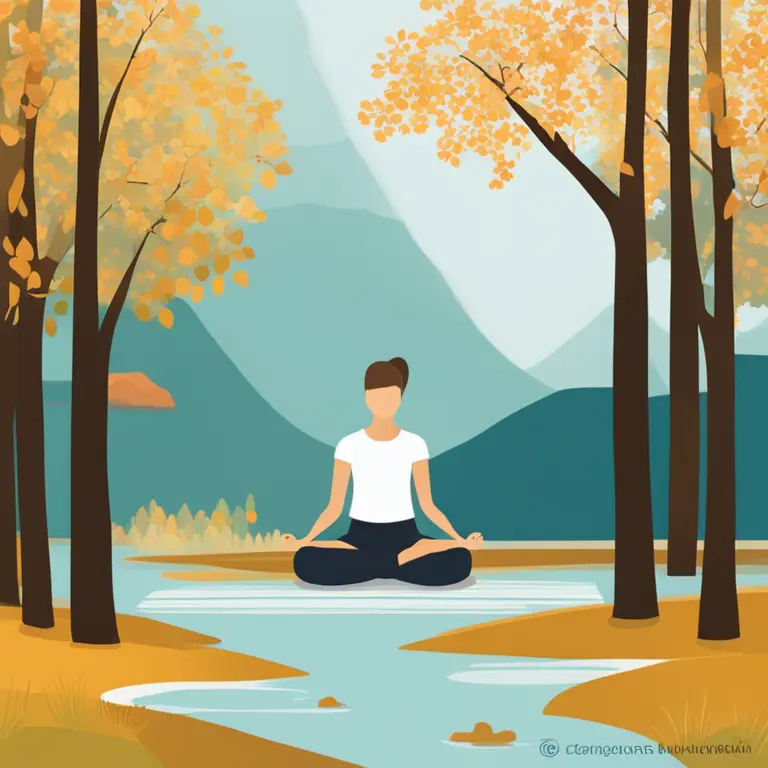
Easing Anxiety Through Mindfulness Meditation
Discover a serene path to calm your mind and alleviate anxiety with the practice of mindfulness meditation.
article by Hina Kurosawa
Introduction to Mindfulness Meditation
Meditation has been a cornerstone in various cultures for centuries, serving as a conduit to enhanced well-being and spiritual growth. Mindfulness meditation, in particular, has gained significant attention for its effectiveness in reducing stress and anxiety. As we charge into 2024, the quest for tranquility in our fast-paced world has never been more relevant. Mindfulness meditation embodies a practice of being fully present in the moment, tuning into our experiences without judgment. This form of meditation guides us to a state where our mind is attentive, aware, and accepting of our thoughts and feelings, creating a sanctuary from the relentless churn of anxiety.

Starting Your Mindful Journey
Embarking on mindfulness meditation requires no special equipment or location, making it an accessible remedy for those grappling with anxiety. Begin by finding a quiet, comfortable space where interruptions are unlikely. Seat yourself in a poised, but relaxed posture, preferably with your feet flat on the ground if seated in a chair or cross-legged if on a cushion or floor. Gently close your eyes or lower your gaze to minimize external visual stimuli and turn your focus inward.

The Rhythm of Breathing
Breathing is the cornerstone of mindfulness meditation. Once settled, draw your attention to your breath. Notice the way air feels entering and exiting your nostrils, or the rise and fall of your chest and abdomen. There's no need to alter or manipulate your breathing pattern—simply observe. As you concentrate on this life-sustaining rhythm, thoughts will inevitably arise. Acknowledge them without engagement, allowing each thought to pass like clouds in the sky, and gently return your focus to the breath.

Cultivating Awareness and Compassion
As humans, we are often our own harshest critics, especially during bouts of anxiety. Mindfulness meditation teaches us to foster a compassionate and nonjudgmental attitude towards ourselves. When you notice judgments arise, acknowledge them and redirect your attention back to your breath with kindness towards yourself. This shift in perspective is critical in managing anxiety, as it helps break the cycle of self-criticism and worry.

Embracing Regular Practice
Consistency is key in reaping the full benefits of mindfulness meditation for anxiety. Aim to practice daily, even if for only a few minutes at a time. As the days progress, you may gradually extend the duration of your sessions. Regular practice not only aids in alleviating anxiety but also equips you with the tools to remain calm amidst future stressors.
Incorporating Mindfulness into Daily Life
Beyond dedicated meditation sessions, strive to incorporate mindfulness into your daily activities. This could be while eating, walking, or engaging in routine tasks. By practicing mindfulness throughout your day, you transform the essence of meditation into a lived experience, lessening anxiety's grip on your life and promoting an enduring sense of peace.
Published: 1/18/2024
Modified: 1/18/2024
More predictions
Come back here soon to learn more about yourself and your future


Exploring Meditation in Psychological Practice
Delve into the psychological perspective on meditation, its benefits, and applications in modern mental health practices.


Best Meditation Techniques for Brain Health
Discover effective meditation practices to enhance cognitive functions and maintain a healthy brain.


The Origins of Meditation: Tracing Its Historical Roots
Discover the historical origins of meditation, its transformation through time, and its profound impact on various cultures around the world in this insightful article.